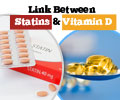- Vitamin D is a fat-soluble vitamin and is necessary for the health of teeth and bones
- A recent study has shown that vitamin D can help reduce the risk of heart disease in older adults
- Vitamin D has a higher protective rate for those who are already taking statins or heart medications, however, further research is required
Vitamin D supplementation and major cardiovascular events: D-Health randomised controlled trial
Go to source).
Vitamin D Can Help Reduce the Risk of Heart Diseases
The researchers emphasize that the absolute risk difference was minor, but that this is the largest trial of its sort to date, and that additional research is needed, particularly in those on statins or other cardiovascular disease medications.Cardiovascular disease (CVD) is a catch-all word for illnesses that damage the heart or blood arteries, and it is one of the leading causes of death worldwide. CVD events such as heart attacks and strokes are expected to rise as populations age and chronic diseases become more prevalent.
Although observational studies have repeatedly demonstrated a relationship between vitamin D levels and CVD risk, randomized controlled trials have found no evidence that vitamin D supplements prevent cardiovascular events, probably due to changes in trial design that can influence outcomes.
To address this uncertainty, Australian researchers set out to see if providing older people with vitamin D on a monthly basis changes the rate of major cardiovascular events.
From 2014 to 2020, their D-Health Trial included 21,315 Australians aged 60-84 who were randomly assigned to receive one capsule of either 60,000 IU vitamin D (10,662 participants) or a placebo (10,653 participants) administered orally at the beginning of each month for up to 5 years.
Data on hospitalizations and fatalities were then analyzed to detect serious cardiovascular events such as heart attacks, strokes, and coronary revascularization which is the therapy to restore normal blood flow to the heart.
During the experiment, 1,336 people (6.6% in the placebo group and 6% in the vitamin D group) had a significant cardiovascular incident.
Vitamin D can Help Decrease the Risk of Heart Attack by 19%
When compared to the placebo group, the rate of major cardiovascular events was 9% lower in the vitamin D group (equal to 5.8 fewer incidents per 1,000 participants).The vitamin D group had a 19% lower rate of heart attack and an 11% lower rate of coronary revascularization, but there was no change in the rate of stroke between the two groups.
There was some evidence that those who were taking statins or other cardiovascular medicines at the start of the experiment had a stronger effect. Nonetheless, the researchers claim that the findings were not statistically significant.
The researchers estimate that 172 people would need to take vitamin D supplements on a monthly basis to avoid one major cardiovascular incident.
The researchers admit that there may have been a little underestimation of incidents and that the findings may not apply to other groups, particularly those with a higher number of vitamin D-deficient people.
This was, however, a large experiment with extraordinarily good retention and adherence rates, as well as nearly complete data on cardiovascular events and death outcomes.
As such, they say their findings suggest that vitamin D supplementation may reduce the risk of major cardiovascular events. "This protective effect could be more marked in those taking statins or other cardiovascular drugs at baseline," they add, suggesting further evaluation is needed to help clarify this issue.
"In the meantime, these findings suggest that conclusions that vitamin D supplementation does not alter the risk of cardiovascular disease are premature," they conclude.
Reference:
- Vitamin D supplementation and major cardiovascular events: D-Health randomised controlled trial - (https://pubmed.ncbi.nlm.nih.gov/37380191/)
Source-Medindia
















